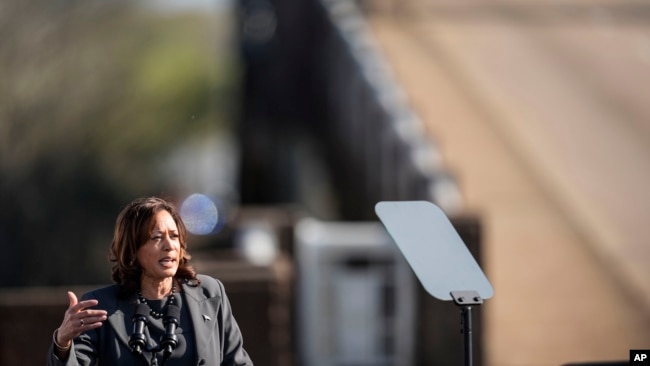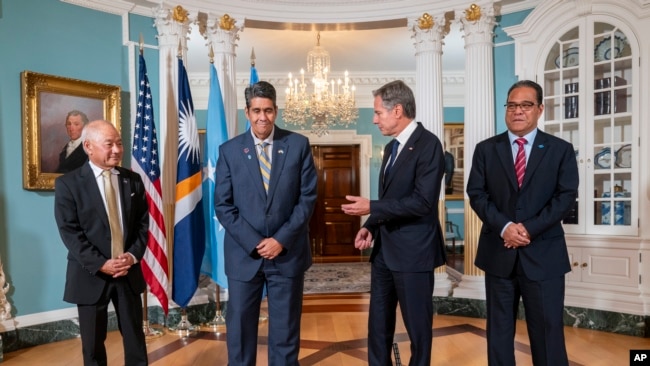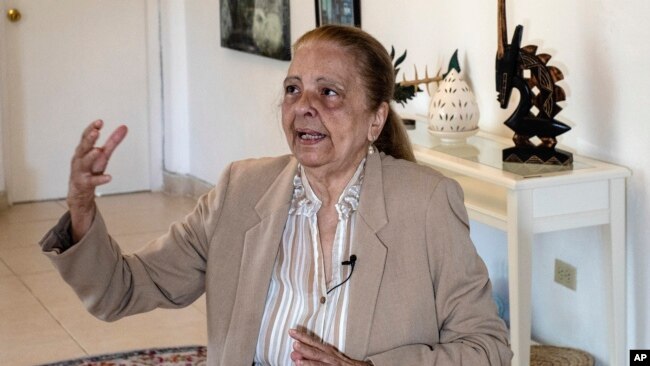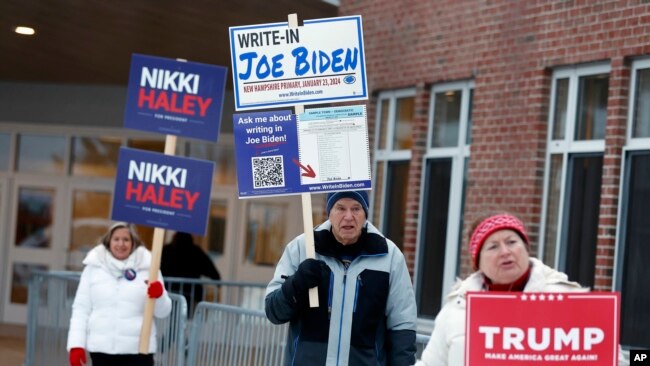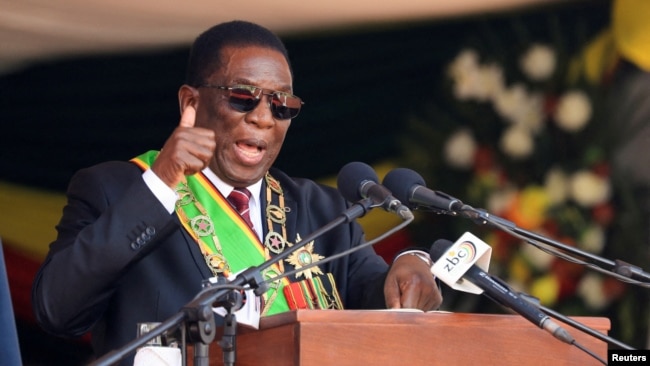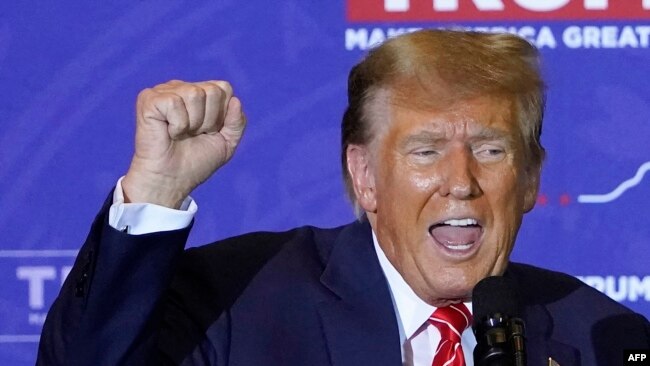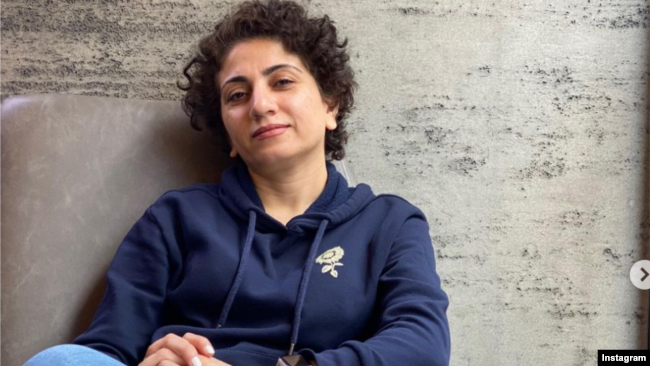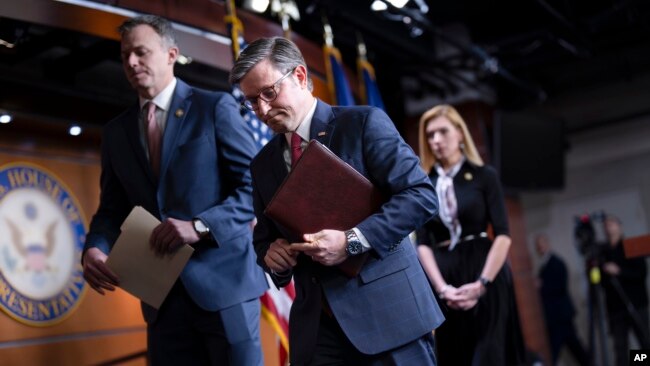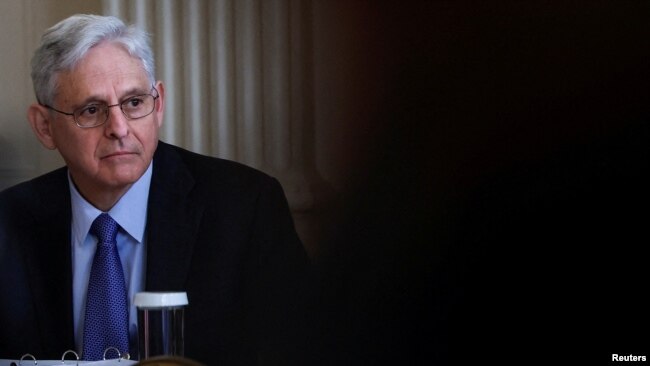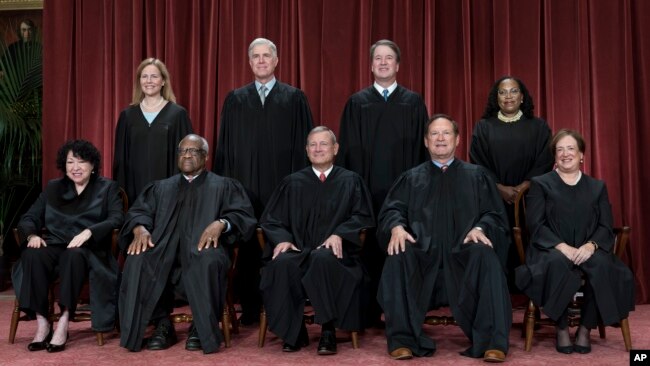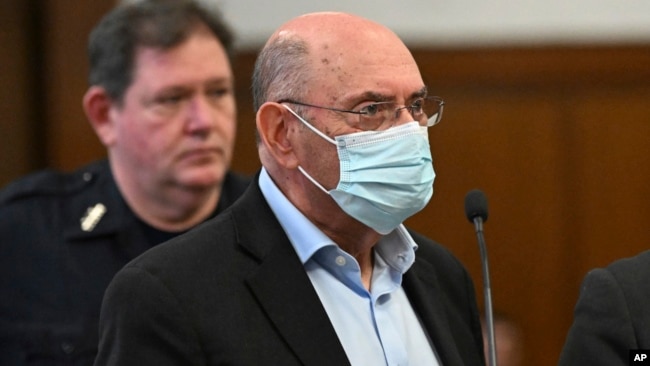중국은 COVID 사례가 증가함에 따라 올림픽 티켓 판매 계획을 포기합니다.
China Drops Plans to Sell Olympic Tickets as COVID Cases Rise
페이지 정보
작성자 Agence France-Presse 작성일 22-01-17 19:49 댓글 0본문
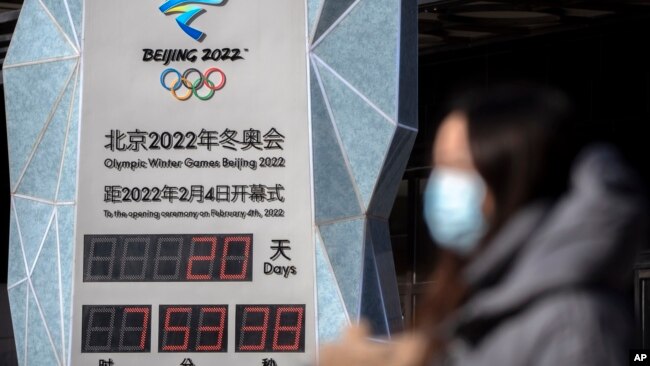
코로나19를 막기 위해 마스크를 쓴 한 여성이 1월 1일 베이징에서 열리는 2022년 동계 올림픽 개막식까지 시간을 카운트다운하는 시계를 지나가고 있습니다.
A woman wearing a face mask to protect against COVID-19 walks past a clock counting down the time until the opening ceremony of the 2022 Winter Olympics in Beijing, Jan. 15, 2022.
중국 베이징이요!
BEIJING, CHINA —
중국은 월요일에 베이징에서 열릴 동계 올림픽 입장권을 판매하려던 계획을 취소했습니다. 중국에서의 COVID-19 환자 수가 2020년 3월 이후 최고치에 달했기 때문입니다.
China on Monday canceled plans to sell tickets to the public for the Winter Olympics in Beijing, as the number of COVID-19 cases in the country reached its highest point since March 2020.
주최측은 작년 올림픽에는 중국의 몇 주간의 검역 요구로 인해 국제 관중이 없을 것이라고 말했지만, 그들은 국내 관중을 허용하기로 약속했습니다.
Organizers said last year there would be no international spectators at the Games – partly due to China's weeks-long quarantine requirements – but they had promised to allow domestic audiences.
그러나 중국이 동계올림픽 개막을 3주 앞두고 223명의 새로운 감염자를 발표함에 따라 월요일 이러한 계획들은 폐기되었습니다.
But those plans were scrapped Monday as China reported 223 new infections just three weeks before the Winter Olympics are set to open.
베이징 올림픽 조직위원회는 성명에서 "올림픽 관련 인력과 관중들의 건강과 안전을 보호하기 위해 일반인들에게 티켓을 판매하고 (대신) 현장에서 경기를 관람할 수 있도록 관중들을 조직하기로 한 당초 계획을 조정하기로 결정했습니다"라고 말했습니다.
"In order to protect the health and safety of Olympic-related personnel and spectators, it was decided to adjust the original plan to sell tickets to the public and (instead) organize spectators to watch the Games on-site," the Beijing Olympic organizing committee said in a statement.
이 관중들이 어떻게 선택될지, 그리고 그들이 경기 전이나 후에 격리되어야 할지는 불분명합니다.
It is unclear how these spectators will be selected and whether they will have to quarantine before or after the Games.
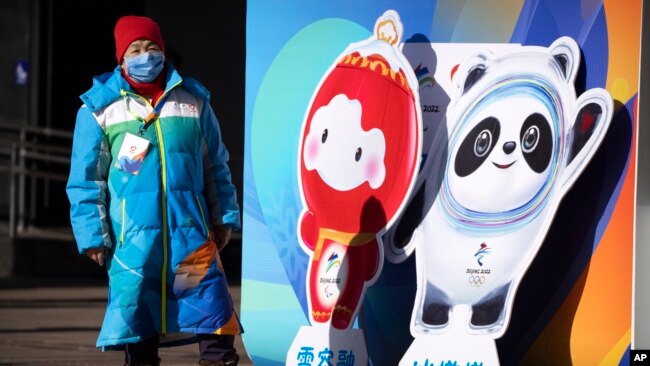
COVID-19를 막기 위해 마스크를 쓴 한 여성이 1월 1일 베이징의 한 거리에서 동계 패럴림픽 마스코트 슈이 론 론 론과 동계 올림픽 마스코트 빙 드웬 옆에 서 있습니다.
A woman wearing a face mask to protect against COVID-19 stands next to figures of the Winter Paralympic mascot Shuey Rhon Rhon left, and Winter Olympic mascot Bing Dwen Dwen on a street in Beijing, Jan. 15, 2022.
2019년 말 바이러스가 처음 출현한 중국은 전 세계가 다시 문을 열었음에도 불구하고 COVID-19 발생 건수 0건을 목표로 하는 엄격한 정책을 고수하고 있습니다.
China, where the virus first emerged in late 2019, has stuck to a strict policy of targeting zero COVID-19 cases even as the rest of the world has reopened.
그러나 최근 몇 주 동안 톈진 항구와 광둥 남부 제조 지역을 포함한 주요 지역에 여러 바이러스 군집이 존재하면서 이러한 접근 방식이 지속적인 압박을 받고 있습니다.
But its approach has come under sustained pressure in recent weeks with multiple virus clusters in key areas, including the port of Tianjin and the southern manufacturing region of Guangdong.
선수들과 관계자들은 올림픽을 앞두고 이미 수도에 상륙하기 시작했고, 즉시 다른 주민들과 분리되는 엄격한 통제의 거품 속으로 들어갔습니다.
Athletes and officials have already started to land in the capital ahead of the Games, immediately entering a tightly controlled bubble separating them from the rest of the population.
지난 주말 베이징에서 감염성이 높은 오미크론 균주가 검출된 후, 당국은 중국 내 다른 지역에서 오는 입국자 규제도 강화했습니다.
After a local case of the highly infectious omicron strain was detected in Beijing over the weekend, authorities also tightened regulations for arrivals from elsewhere in China.
수도는 이제 여행 전 음성 검사와 입국 후 추적 검사를 요구하고 있는데, 주민들은 다가오는 설 연휴를 맞아 도시를 떠나지 말 것을 촉구했습니다.
The capital is now demanding a negative test before travel and a follow-up test after entering, with residents urged not to leave the city for the upcoming Lunar New Year holiday.
일부 관광지도 폐쇄되었습니다.
Some tourist sites have also been closed.
한 고위 보건 당국자는 현지 사례가 국제 우편으로 반입되었을 수 있다고 말한 후 주민들에게 "해외에서 물건을 사는 것을 피하라"고 말했습니다.
A senior health official told residents to "avoid buying goods from overseas" after saying the local case could have been brought in by international post.
베이징의 감염된 여성은 여행이나 다른 감염자들과 접촉하지 않았다고 당국은 같은 지역에 거주하거나 일하는 13,000명의 사람들을 검사하면서 말했습니다.
The infected woman in Beijing had not traveled or had contact with other infected people, authorities said as they tested 13,000 people living or working in the same area.
보건당국 관리인 팡 싱궈는 기자들에게 감염된 사람이 캐나다로부터 받은 편지의 표면에서 바이러스가 발견되었다고 말했습니다.
Health official Pang Xinghuo told reporters the virus had been found on the surface of a letter the infected person had received from Canada.
동일한 묶음의 수십 통의 편지를 검사했고 5 통은 COVID-19의 흔적을 보여주었습니다.
Dozens of letters from the same batch were tested and five showed traces of COVID-19, Pang said.
변종은 중국의 오미크론 케이스와 다르고 지난달 북미에서 확인된 변종과 유사하다고 그녀는 덧붙였습니다. "우리는 인바운드 물체를 통한 바이러스 감염 가능성을 배제할 수 없다는 결론에 도달했습니다."
The strain was different from omicron cases in China and similar to variants identified from North America last month, she added. "We come to the conclusion that the possibility of virus infection through inbound objects cannot be ruled out."
그러므로 거주자들은 "발병 기간 동안 해외에서 물건을 사는 것을 피하도록 노력해야 한다"고 팡씨는 말했습니다. 해외 우편물을 받으면 마스크와 일회용 장갑을 착용해 직접적인 접촉을 줄여야 합니다.
Therefore, residents should "try to avoid buying goods from overseas during outbreaks", Pang said. "If you receive overseas mail, you should wear masks and disposable gloves to reduce direct contact."
그녀는 사람들에게 "포장을 야외에서 열어 보라"고 조언했습니다.
She advised people to "open the packages outdoors.”
중국은 다수의 바이러스 클러스터를 해외에서 수입된 제품과 연계해 왔습니다.
China has linked a number of its virus clusters to products imported from overseas.
바이러스가 중국에서 유래한 것이 아니라 냉동 식품에서 수입되었다는 베이징의 이론은 세계보건기구(WHO)가 임명한 지난해 보고서에서 "가능성"으로 판단되었지만 가능성은 매우 낮았습니다.
A theory from Beijing that the virus did not originate in China but was imported in frozen food was judged "possible" but very unlikely in a report last year by international experts appointed by the World Health Organization.
미국 질병통제예방센터(Centers for Disease Control and Prevention)는 웹사이트에 사람들이 오염된 표면이나 물체와 접촉하여 감염될 가능성이 있지만 위험은 낮다고 밝혔습니다.
The Centers for Disease Control and Prevention in the United States says on its website it is "possible" for people to be infected through contact with contaminated surfaces or objects – but the risk is low.
3일 이내에 표면에 남아 있는 바이러스 흔적을 99% 줄일 수 있습니다.
Within three days, there should be a 99% reduction in any virus traces left on surfaces.
분석가들은 표적 봉쇄와 여행 제한을 포함하는 중국의 제로 COVID 접근 방식이 점점 더 경제에 부담을 줄 것이라고 경고했습니다.
Analysts have warned that China's zero-COVID approach – which includes targeted lockdowns and travel restrictions – will increasingly weigh on the economy.
수백만 명의 주민들을 대상으로 부분적인 봉쇄와 대량 검사를 실시한 허난성 중부 전역에서 월요일 약 68건의 COVID-19 사례가 보고되었습니다.
Some 68 COVID-19 cases were reported Monday across central Henan province, where partial lockdowns and mass testing have been rolled out for millions of residents.
출처 : VOANews
댓글목록 0
등록된 댓글이 없습니다.


